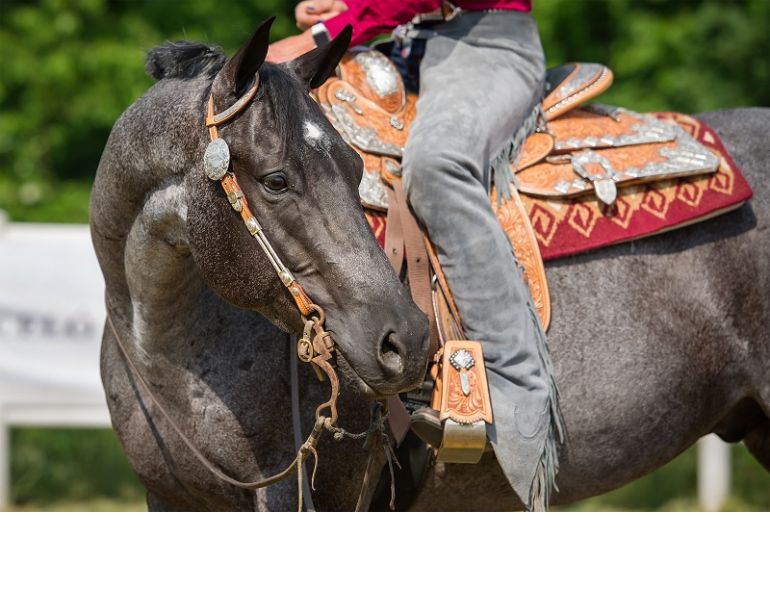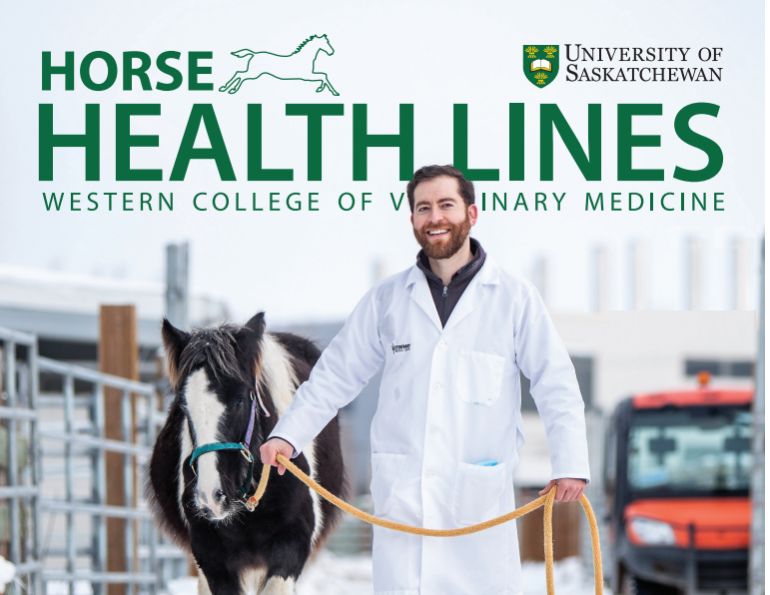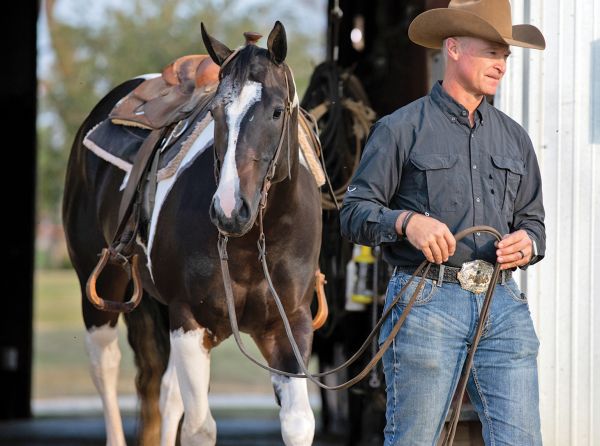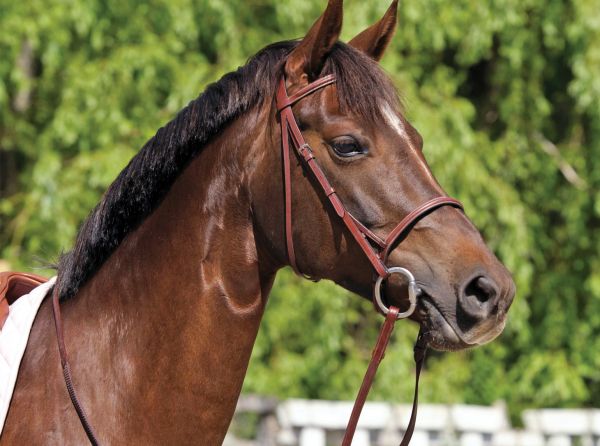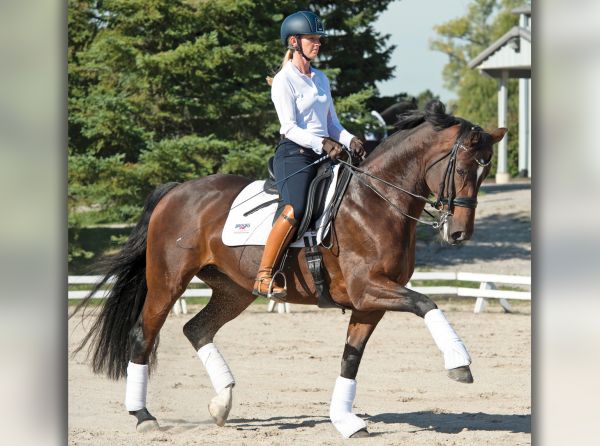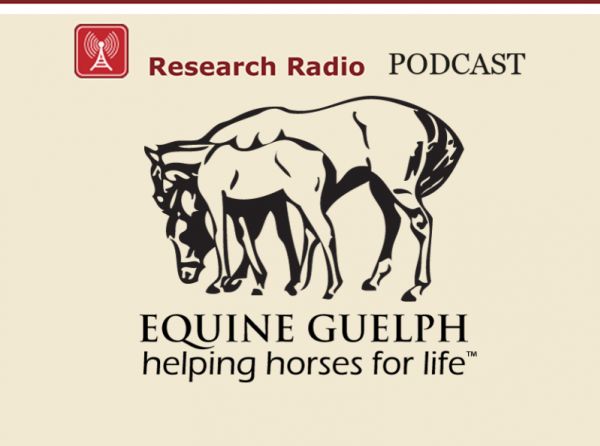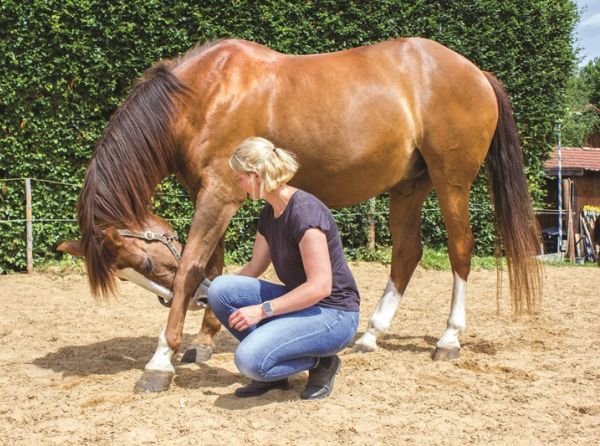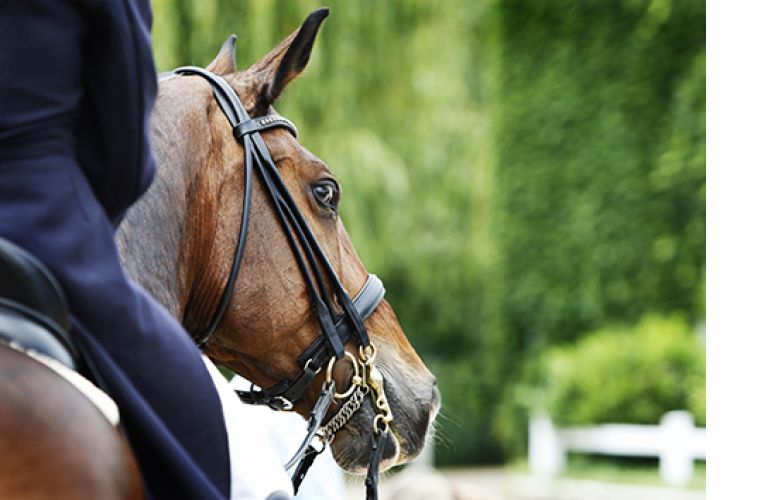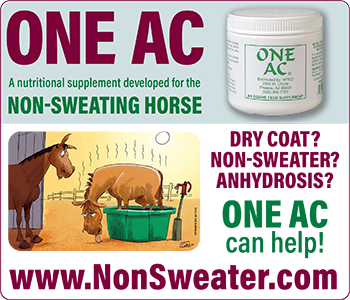By Lauren MacLeod
For a horse owner, there are few sights more welcome than the first signs of spring. As the snow melts away and the pastures begin to turn green, horse owners are glad to see the end of short days, frozen water buckets, and woolly coats. Springtime means longer, warmer days to spend working in the arena or hitting the trails. The season is also an ideal time to catch up on your horse’s healthcare needs. By ensuring that your horse is in tip-top shape coming out of the winter, you will be able to make the most of the upcoming riding, showing, and breeding season.
1 – Vaccinations
Vaccines are a fundamental part of keeping your horse healthy. The beginning of springtime is a perfect time of year to book your horse’s annual vaccination appointment. By having your horse’s vaccinations done in the early spring, his immune system will be primed and ready to protect him from dangerous viruses or bacteria to which he may be exposed during the spring and summer months. Some of these diseases are passed from horse to horse (such as at a horse show), and others are passed from mosquitoes to horses. In both of these circumstances, the likelihood of exposure to equine infectious disease increases in the spring and summer.
When deciding which vaccines should be given to a particular horse, each case must be assessed individually. Your veterinarian will consider factors such as geographical region, lifestyle and use of the horse, and current or previous medical issues. The American Association of Equine Practitioners (AAEP) recommends that all horses in North America be vaccinated against five diseases: tetanus, West Nile virus, Eastern and Western equine encephalomyelitis, and rabies. Each of these diseases are endemic in many geographical areas of North America, and each has the ability to cause fatal neurological disease in horses. Because of the prevalence and severity of these diseases, the AAEP has deemed them to be core vaccinations for horses and there is a high likelihood that these vaccines will be recommended for your horse.
There are many other vaccines available, and your veterinarian may recommend them depending on your horse’s risk of exposure. Two common examples are Equine Influenza virus and Equine Herpesvirus-1 and -4. These viruses can cause fever and respiratory symptoms and result in an extensive recovery period for your horse. They are often spread when groups of horses come together at racetracks, horse shows, or boarding stables. If your horse will be in any of these situations, your veterinarian may recommend vaccination against these viruses in addition to the core vaccines. It is important to remember that there is no single protocol for vaccinating horses and many factors at play when designing a vaccination schedule for the individual horse.
2 – Dental Care
Before the riding season is in full swing, it is advisable to have your horse’s teeth checked. Dental abnormalities can greatly affect your horse’s comfort, performance, and ability to maintain a healthy weight. If dental issues are addressed before work begins, the horse will be happier in the bridle and better able to progress through his training.
An equine dental appointment is so much more than just floating teeth. The entire oral cavity must first be assessed with a thorough oral examination. In order to safely examine the whole mouth and each individual tooth, the horse should be sedated for the procedure. The veterinarian will use a dental speculum and various instruments such as mirrors, probes, and a light source. A sedated oral examination is the only way to reliably detect problems such as sharp points, fractured or loose teeth, and abnormalities of the horse’s occlusion (bite). Other less common findings include foreign material, oral abscesses, or tumours. A quick glance in the mouth of an awake horse is simply not sufficient to detect all of these potential problems.

The horse should be sedated to allow a safe and thorough oral examination, during which the veterinarian will use a dental speculum to hold the mouth open and a file or float to level sharp points and overgrown teeth. Photo: Canstock/Kiep
After the oral examination, the veterinarian will use a file or a float to level out sharp points and overgrown teeth. This is always done carefully to prevent damaging the teeth or exposing the sensitive pulp cavity inside. Other dental treatments include removing feed caught in abnormal gaps between the teeth, removing built-up plaque, and extracting loose teeth or fragments that may be a source of pain. Occasionally, a veterinarian may recommend taking a series of radiographs of the teeth and skull based on their findings during the oral examination. Radiographs are useful in evaluating the roots of the teeth as well as the surrounding bones and sinuses.
Once your horse has a clean bill of dental health, you can feel confident that his mouth will be comfortable as you ramp up your spring riding and training.
3 – Parasite Control
With the arrival of warmer weather, many horses are turned out on pasture for several months of grazing. While freedom and fresh grass have many health benefits, pasture grazing is also the main mode of transmission of parasite eggs between horses. Therefore, parasite control is an important part of spring horse health management.
Related: Colic Prevention - Introduce Spring Pasture Slowly
Traditional deworming programs, in which different types of dewormers were given on a rotational basis every two or three months, has led to changes in the equine parasite populations of today. The most dangerous intestinal parasite of adult horses, the large strongyle, was once a cause of serious and sometimes fatal colic. However, frequent deworming of horses over the past few decades has made large strongyles very rare in domestic horses. Presently, the most common parasite afflicting adult horses is the small strongyle. This worm is much less dangerous than the large strongyle. In fact, adult horses often show no ill effects from small strongyles, unless they are infested with a large burden of these worms. Therefore, it is now advised to test the feces of adult horses to determine how many eggs they are shedding. The majority of domestic horses are “low shedders,” meaning they have an inherent immunity to small strongyles and do not have a high worm burden. These horses do not require frequent deworming, and often only need to be dewormed once or twice annually with a product that targets small strongyles. On the other hand, the few “high shedders” in the herd are responsible for over 80 percent of the worm eggs that end up on the pasture. These horses have a difficult time fighting off the strongyle worms on their own. They require more frequent deworming treatments to keep their worm burdens at bay and to reduce the spread of worm eggs on the pasture. By deworming these “high shedders,” the pasture will be kept cleaner, which benefits the rest of the herd.

The main mode of transmission of parasite eggs between horses is pasture grazing. The feces of all adult horses should be tested to determine the number of parasite eggs being shed and the deworming regimen needed. Foals should be dewormed for roundworms at two and four months of age. Photo: Shutterstock/Osetrik
Foals need special consideration. The major parasite of foals is the roundworm, which can cause failure to gain weight, a potbellied appearance, cough, and even colic. Because roundworms can cause these serious health problems, it is advisable to deworm foals with a product that targets roundworms at two and then four months of age. Fecal testing is not needed in these young foals, as roundworm egg counts do not correlate well with the actual number of adult worms in the foal. Once the foal is six months of age, however, fecal testing is advisable because foals of this age may also be infested with small strongyles. An appropriate dewormer is selected based on this test.
In summary, as horses return to pasture in the spring, the two main parasites to manage are small strongyles and roundworms. These parasites have two very different control strategies. Your veterinarian can help design a parasite control program that is tailored to the needs of your horse or herd.
4 – Soundness Evaluation
Just as your horse’s dental health should be addressed prior to the summer riding season, it is wise to have his soundness evaluated as well. Subtle musculoskeletal pain can certainly cause trouble in training but may not appear as overt lameness. Because of this, it is best to set your horse (and yourself) up for success and make sure his body is comfortable and able to do what you are asking.
The veterinarian who assesses your horse’s soundness will first examine the horse’s feet, limbs, neck, and back while the horse is standing at rest. Any areas of asymmetry, pain, swelling, or reduced range of motion are recorded as they may hint at signs of trouble. Conformational defects are also noted. While your horse may be perfectly sound with less than ideal conformation, these flaws can predispose him to future soundness issues. Sometimes, the risk of future lameness can be reduced by compensating for these defects with corrective shoeing, or by avoiding certain types of training exercises and footing.

A soundness evaluation can detect subtle problems before they lead to more serious issues down the road. Photo: Clix Photography
After the standing examination, the horse will be observed at the walk and trot on a straight line and circles in both directions. Both hard and soft footing should be used, as some types of lamenesses only appear on one type of footing or the other. Flexion tests are often performed to detect more subtle issues or to further characterize an observed lameness. To carry out a flexion test, the veterinarian holds the limb in question in flexion before trotting the horse off. If a lameness appears or worsens, the flexion test is deemed positive. The veterinarian may also wish to see the horse worked under saddle or in harness, depending on what the horse does for a living.
After gathering all this information, the veterinarian will provide his or her opinion on the horse’s soundness. If a problem is found, further diagnostic testing may be necessary to help pinpoint the issue. However, if no lameness is seen, you can carry on into the riding season with peace of mind knowing that your horse will be able to perform pain-free and at his best.
5 – Broodmare Care
If you are planning to breed your mare this spring, additional management and healthcare needs must be considered. While your broodmare-to-be has the same general health, dental, vaccination, and deworming requirements as any other horse, special attention must be given to her reproductive health to maximize her chances of delivering a healthy foal next year.
Related: Breeding Your Mare
Once your mare begins cycling regularly in the spring, she should have a complete reproductive examination by your veterinarian. At this appointment, she will first have a general physical exam to make sure she is a healthy candidate for breeding. Then, the mare’s external reproductive tract is evaluated by visual inspection of her vulva, which should be tightly sealed and upright without too much slope. A vaginal speculum is used to visualize the inside of the vagina and the cervix to ensure there is no abnormal discharge or previous injury to these areas. Rectal palpation and ultrasound is needed to assess her internal reproductive tract (uterus and ovaries). This will determine the current stage of her cycle and check for any abnormalities that may make it more difficult for her to attain a pregnancy. If there are any concerns about intrauterine infection, or endometritis, based on her history or examination, a swab of her uterine lining should be taken and evaluated for inflammatory cells and bacteria.

If you plan to breed your mare this spring, a reproductive exam by a veterinarian experienced in reproduction is a worthwhile investment. Photo: Shutterstock/Kyslynskahal
It is well worth having a reproductive examination on your mare prior to booking her to a stallion or buying doses of frozen semen. If there are findings on the exam that could affect her fertility, breeding her could be expensive and frustrating. It is important to understand the financial investment that may be necessary to achieve a pregnancy in a subfertile mare, as these mares require special veterinary management at breeding time, and are often bred on multiple cycles before they become pregnant. Often, these issues are compounded when frozen semen is used, so if your mare falls into this category, you may wish to select a stallion that can supply fresh semen to increase your chances of success.
Having a good working relationship with a veterinarian experienced in equine reproduction is crucial to maximizing your mare’s reproductive potential, whether she is in her reproductive prime or not. Even a mare with decreased fertility can become pregnant and deliver a healthy foal with meticulous management and care (and a little luck!).
Springtime brings a flurry of activity to the equine industry. It is the perfect time of year to get on top of your horse’s basic healthcare. Whether you are a top competitor or weekend warrior, a long-time breeder or a first-time mare owner, your horse will thank you for making sure that he is comfortable and happy prior to the busy summer months.
Main photo: Consult with your veterinarian to determine the vaccinations your horse should receive based on his risk of exposure. Photo: Clix Photography







